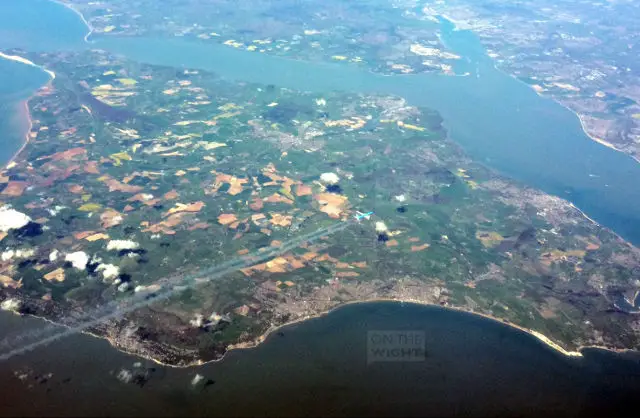This latest news on the Fight for the Isle of Wight Campaign. Ed
A total of 10,465 people from the Isle of Wight, and from across the world, signed the Fight for the Wight petition which has been live over the past six months.
The petition seeks to make the ‘emotional’ case for fairer funding for the Isle of Wight; in the words of individuals who the cuts in funding to council services, directly affects. At the same time the Isle of Wight Council has used and continues to use every opportunity to discuss with government the ‘Island case’ for a fairer funding settlement for the Isle of Wight. It has especially responded to the opportunity provided by the government’s own fair funding review initiated by Greg Clark MP when he was Secretary of State for Communities and Local Government.
From five to 100 years old
A total of 4,708 individual stories from people who will be affected by reductions in council services as a result of cuts to the council’s funding were also collected, demonstrating the tangible impact on Island residents, caused by the national austerity agenda and which is likely to continue until at least 2020.
The oldest person to sign the petition was 100 years old; the youngest was five years old. Fifty eight per cent of those signing the petition were aged over 50. People from across the world signed the petition, with signatories from as far away as Brazil, Pakistan and South Africa.
People’s stories
Jillian from Ryde, said:
“I will retire in four years time, having always worked; I would like my Island to have a good financial structure, have jobs, have reasons for people not to leave the Island for work, and to have industry here for people to want to come to the Island to put money in the Island’s economy.”
Lorraine from Sandown, said:
“We have four generations of family on the Island, therefore, the cuts affect all areas from social care for elderly to education for our grandson, aged three. Cuts impact hugely on our environment… the budget cuts are killing this beautiful Island.”
Ian (originally from the Island) from Newbury, said:
“We are Islanders that had to move to mainland for work, this is going to be worse for Islanders (and my family) unless you get real funding to develop the Island. This is not just about council funding, the Island needs real investment and to attract a few businesses and entrepreneurs.”
CP working with the MP’s office
Alan Marriott, editor of the County Press, is working with the MP’s office and other interested parties to arrange a date to present the petition to the new Secretary of State for Communities and Local Government, Sajid Javid MP, at Westminster.
Alan Marriott said:
“The County Press has been proud to lead this petition and we are delighted more than 10,000 people from across the Island and beyond have recognised the funding crisis facing the Isle of Wight. The Isle of Wight Council may be tackling the shortfall in other ways now but the fact remains there is a huge black hole in our finances, that only government can fill.”
Looking for a positive outcome
Councillor Jonathan Bacon, leader of the Isle of Wight Council, said:
“I’d like to thank everyone, far and wide, for not only signing the Fight for the Wight petition or for offering their own personal account, but for supporting the campaign in its entirety. The feedback and feeling that I’ve found over the past six months has demonstrated that people now have a genuine understanding of the issues being faced by their council and the extremes to which it has been pushed.
“The campaign, alongside the many approaches that we have formally made to the government, must have a positive result in the longer term. A positive outcome from the government’s fair funding review is what we seek, but we won’t know the outcome or the impact this will make on future council funding opportunities until 2019/20, and we have some short term challenges which have to meet now. I know that through our strategic efforts as a community, we have made the best possible case to the government for the Isle of Wight’s funding to be considered on its uniqueness in future years.
“All of our analysis demonstrates that there is an ‘Island case’ for sufficient funds so that our community can access the same standard of services as are available on the mainland. While still pressing that case, we cannot let the grass grow beneath our feet; we needed to find a route to secure our own financial future, which we have done.”
New approach taken
In recent weeks, the council has taken stock of its position and reinvigorated its efforts to find a different response to its financial challenges and secure a positive, more sustainable future for the Isle of Wight. This new approach will be built upon the pillars of regeneration, growth and productivity.
The council is investing in capacity to: generate growth; support local business, workers and the community, by improving its business rate and council tax base, and generating additional income.
Councillor Bacon added:
“We must stimulate economic growth and be in a position to maximise our return from all funding opportunities, work more effectively with all of our partners, and ensure that our services offer the best value we can to the local community.”
The Island’s blueprint for success centres on recruitment of a new regeneration team to deliver realistic growth and regeneration, at scale. This team will build capacity and drive within the organisation to take an alternative view to resolving its financial challenges. It will also consider longer term strategic development; assess potential and opportunity, while delivering a targeted inward investment strategy.
Delivering a ‘step change’
John Metcalfe, chief executive of the Isle of Wight Council, said:
“Funding bids will be big, bold and ambitious, and of sufficient scale to deliver a ‘step change’ in the council’s and the Island’s economic position. To be self-sustaining in the long term, regeneration is key. By generating more and new income for the council; the council is ‘investing to save’ in the Island’s future.”
Regeneration
Schemes totalling around 245 hectares of development potential have been identified in Cowes and East Cowes, Newport – including the harbour and town centre, Ryde and the Sandown Bay area. When realised, they have the potential to generate millions of pounds of investment and growth for the Island, creating jobs, boosting economic activity and attracting new and exciting industry.
This invigorated focus comes at a time when the Island is at the forefront of other ambitious and innovative approaches to underpinning its future prospects, in the form of local growth deals with the Solent Local Enterprise Partnership and the possibility of locally controlled investment funds if the council and its partners at Southampton and Portsmouth city councils can secure a devolution deal with government.
Building on existing expertise
There is also the opportunity to build upon existing expertise available, in marine, maritime, renewable energy and composites – excellence that is recognised throughout the world and to support existing and emerging opportunities including the establishment of targeted training to support future generations into work, built on the back of recent upturns in educational success.
While the Island’s financial challenges have not gone away, the Isle of Wight Council is reinvigorating its efforts to lead the Isle of Wight in finding the best sustainable response to them for the whole community.
Image: © Used with the kind permission of Paul Thorn





